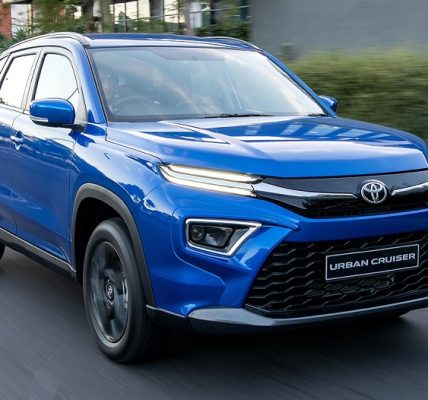In recent years, the auto industry has undergone significant changes and developments. Technology advancements, changing consumer preferences, and environmental concerns have all played a role in shaping the current trends in this ever-evolving industry.
But what exactly are these trends? In this article, we will dive deeper into some of the major shifts that are currently happening in the automotive world.
Electric Vehicles
One of the biggest trends in the auto industry is the increasing popularity and production of electric vehicles (EVs). With concerns over climate change and a push towards greener solutions, many car manufacturers are investing heavily in EV technology.
In fact, according to a report by Bloomberg New Energy Finance, it is estimated that by 2040, 57% of all passenger vehicle sales will be electric. This is a significant jump from the current 2% market share held by EVs.
Autonomous Vehicles
Another major trend in the auto industry is the development and testing of autonomous vehicles (AVs). These are self-driving cars that use sensors, cameras, and artificial intelligence to navigate roads and make decisions.
While fully autonomous vehicles are not yet available for public use, many car companies are investing in this technology and testing it on the roads. It is predicted that by 2025, there will be over 8 million autonomous cars in use worldwide.
Subscription Services
In recent years, there has been a shift towards subscription-based services in various industries, and the auto industry is no exception. Instead of purchasing or leasing a car, some companies are offering subscription services where customers can pay a monthly fee and have access to a range of different vehicles.
This trend is appealing to consumers who want more flexibility and variety in their vehicle options without the commitment of owning or leasing. It also allows for easier upgrades to newer models as they become available.
Ride-Sharing Services
Ride-sharing services like Uber and Lyft have also had a significant impact on the auto industry. These services allow people to access transportation without owning a car, which has led to a decrease in vehicle ownership.
This trend is not only changing how people get around but also impacting the type of cars that are being produced. With more emphasis on ride-sharing, there is a growing demand for larger vehicles such as SUVs and vans.
Connected Cars
In today’s digital age, connectivity is key. This has led to the rise of connected cars – vehicles with internet access and advanced features such as GPS navigation, real-time traffic updates, and smartphone integration.
Not only do these connected cars provide convenience for drivers, but they also offer opportunities for data collection and analysis. This data can then be used to improve the driving experience and inform future advancements in automotive technology.
Sustainability
As mentioned earlier, concerns about climate change have led to a push for sustainability in the auto industry. This includes not only the production of electric vehicles but also implementing more sustainable practices throughout the entire manufacturing process.
Many car companies are now using recycled materials, reducing their carbon footprint, and investing in renewable energy sources to power their production facilities.
Virtual Showrooms
With the rise of technology, the traditional car-buying experience has also seen a shift. Instead of visiting physical showrooms, customers can now explore and customize vehicles through virtual showrooms and online platforms.
This trend not only offers convenience for potential buyers but also allows car companies to reach a wider audience and build a stronger online presence.
FAQs
Q: Are electric vehicles the future of the auto industry?
A: With increasing concerns about climate change, it is highly likely that electric vehicles will play a significant role in shaping the future of the auto industry. However, other factors such as cost and infrastructure may also impact their widespread adoption.
Q: Will autonomous vehicles replace traditional cars?
A: While autonomous vehicles are expected to become more prevalent in the future, it is unlikely that they will completely replace traditional cars. There will still be a demand for manually driven vehicles, especially for enthusiasts and those who enjoy driving.
Q: How do subscription services work in the auto industry?
A: Subscription services allow customers to pay a monthly fee and have access to a range of different vehicles, usually through an app or online platform. This eliminates the need for car ownership and allows for more flexibility in vehicle options.
Q: Are ride-sharing services impacting the type of cars being produced?
A: Yes, with the rise of ride-sharing services, there is a growing demand for larger vehicles such as SUVs and vans. This trend is likely to continue as more people opt for ride-sharing over car ownership.
Q: How are connected cars changing the driving experience?
A: Connected cars offer advanced features such as GPS navigation, real-time traffic updates, and smartphone integration. These features not only provide convenience for drivers but also have the potential to improve safety and efficiency on the road.
Conclusion
The auto industry is constantly evolving, and these current trends are just a glimpse into what the future may hold. From electric vehicles to subscription services, sustainability to connected cars, these advancements are shaping the way we drive and interact with automobiles.
As technology continues to advance, it will be interesting to see how these trends develop further and what other shifts may occur in the automotive world. One thing is for sure – the auto industry will continue to adapt and innovate to meet the changing needs and demands of consumers.






